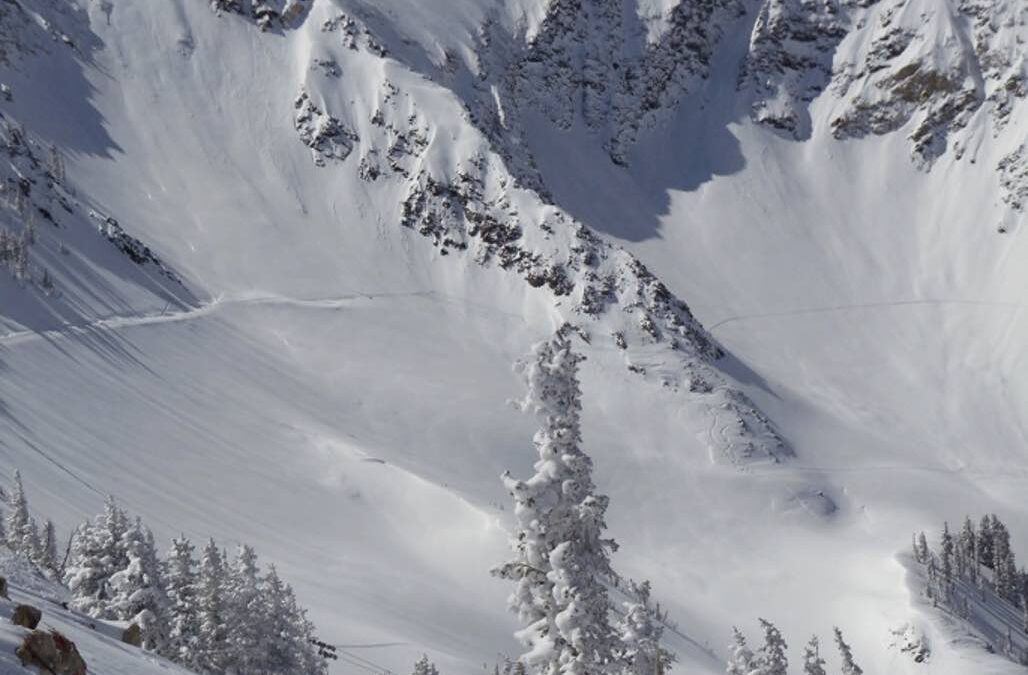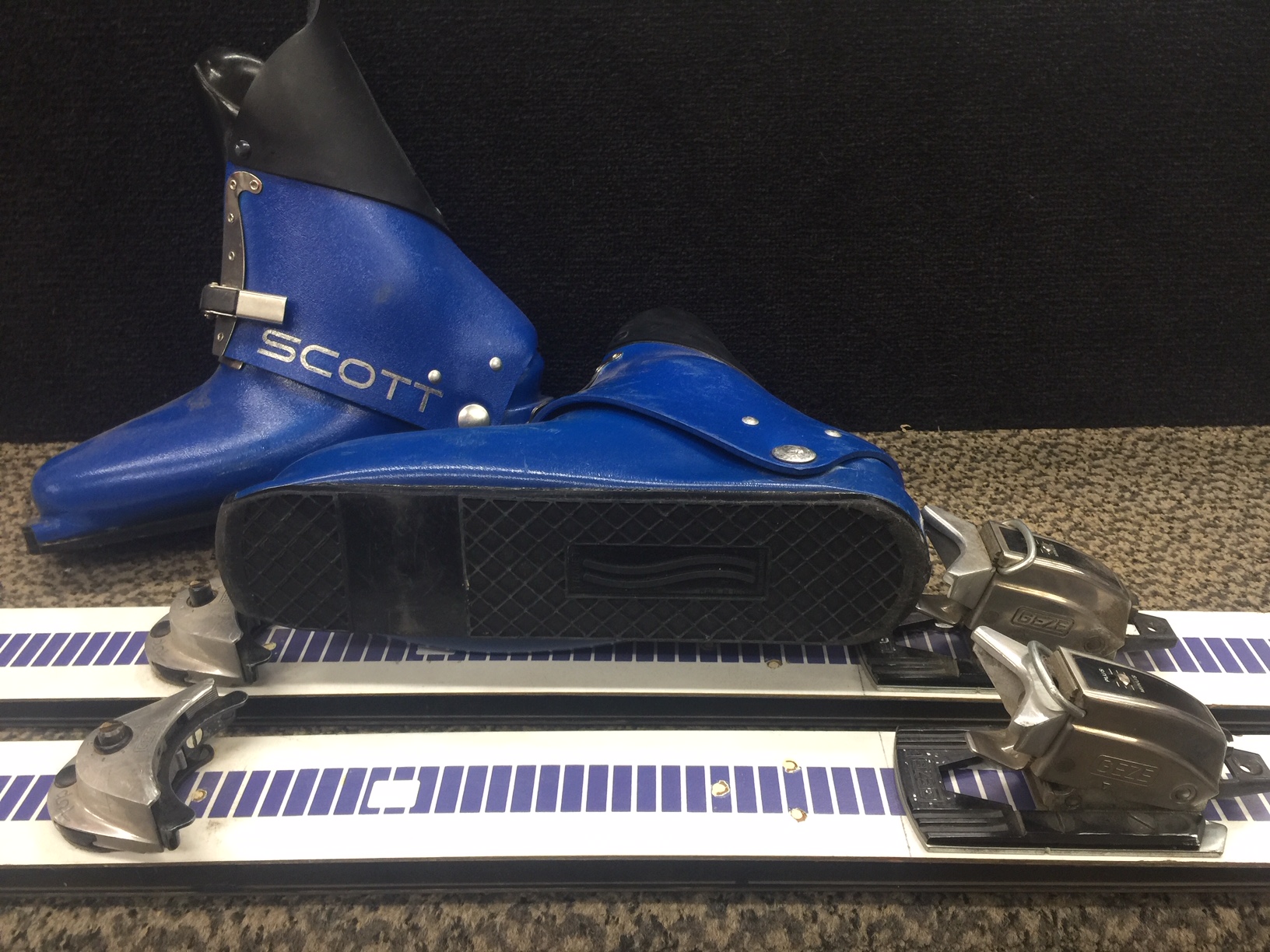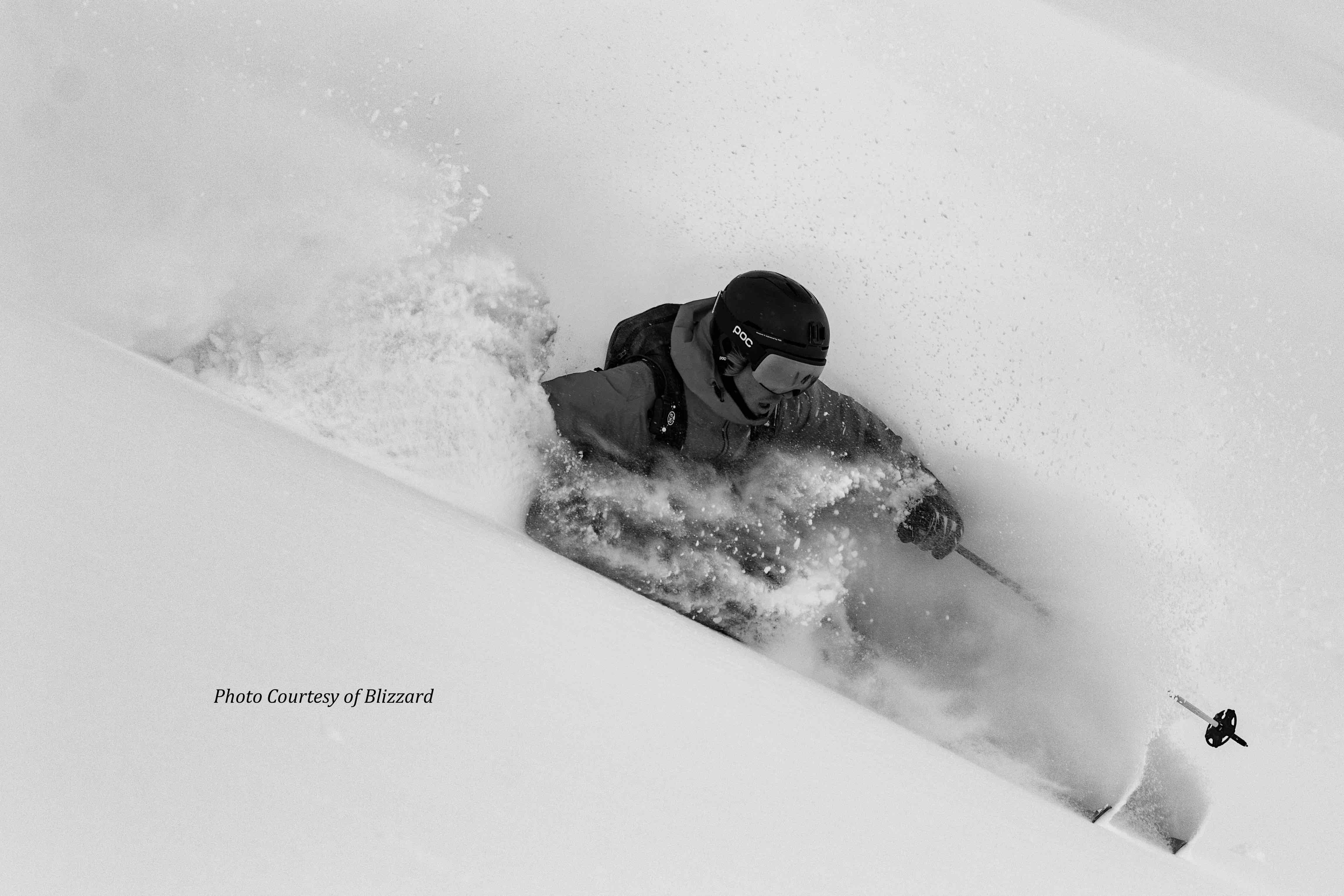
Traverses, as the name denotes, cut across the grain of gravity. They are the access points – access bands, actually – to the three giant spirals that radiate from Hidden Peak. They are the paths to adventure, the roads that skirt the edge of the event horizon. Most of the traverses on Snowbird have the good manners to flow downhill, but a few extract a small effort tax to hew to the track. All of them must be endured, even honored, for just beyond their mundane, battle-scarred trenches lie rivulets of white essence, the rapids that rationalize the deferred gratification that defines the energy zone of the traverse.
As the tram approaches the peak, it’s impossible not to notice the Cirque, a huge hollow in the earth that must have been formed by a meteorite that loved skiing. The trick is getting to it, and that is your first lesson in traverses. Tighten your pole straps, it’s going to be a bumpy ride.
Your route is called the Cirque Traverse, comprised of 3 distinct sections. First, if you want the steepest, most intoxicating lines off this route, head expeditiously toward Regulator Johnson, then exit stage right as fast as the terrain allows. You are now traversing towards the first of several stops along a complete semi-circle that includes options going west, north and east. For the moment, you’re looking down, for the first options along the upper rim of the Cirque look like elevator shafts designed by the divinely demented, with gremlins calling out the floors.
“First entry, Great Scott! On this floor, you’ll find Commitment, Visualization and Men’s Underwear! Please observe all entry gates as they are marked for your protection. Next stop, Upper Cirque! A less vertiginous first turn, but provides superb, consistent fall lines for experts of all ages! Please be aware of chargers assaulting the most ridiculous lines at all times, so do not linger until you are on the valley floor. Thank you!”
With one of the most precipitous plunges in North America in their sites, the skiers and riders heading to this destination are amped. You do not want to be the last object standing between a gravity-obsessed local and the shot with his name on it, so move as you would on the Autobahn, with purpose but yielding the right of way before higher horsepower. Many of the skiers alongside you have particular whorls on the spiral circulating on your right that they plan to tip into, so always be alert to traffic moving with the heat of intention.
The Cirque Traverse follows an exposed ridgeline, so even if it didn’t suffer from traffic that can seem as busy and manic as Rome’s, it would still look like a minefield. Winds dispatched from anywhere along the compass from the southwest to the northwest can strip, pile and scallop the snow pack, turning every sortie across this crispy lip into an adventure. Slip low to skier’s left along the route to catch the less abusive dips, but stay close enough to the ridge to keep your options open.
If you resist the siren call of the Mid-Cirque, the next opening you’ll encounter on the Lower Cirque Traverse is the first Gad Chutes gate, which accesses the first selection of west-facing shots. These are very steep and choked halfway down with rock reefs, which require significant snow depth to make them a comfortable drop. It also takes good snow cover to fill the next few lines to the point where they can be sampled insouciantly.
The Cirque Traverse ends in a fireworks of possibilities, the excitement compounded by steep pitches, choppy terrain, wind-battered snow and a wide variety of narrow runs. Hit the brakes, keep cool and check out your options. To the west lie entrances to Restaurant Roll, Forbidden Forest and Nirvana. To the east, the last, choice lines feed into the Lower Cirque. The traverse shows telltale evidence of being well-travelled, with spine-bending, choppy waves, so pump the brakes as you head down to the twin entry points to South Chute. To skier’s right, the Tower Chutes hold a perpetual gravity party, flowing down to the last third of Peruvian Gulch. To skier’s left, Wilbere Bowl beckons, while straight ahead, heading north, Dalton’s Draw and Mach Schnell invite exploration.
To gain a fuller appreciation of all the options available off the Cirque Traverse, take a gander at the west-facing exposures from the Gadzoom chair. To check out the east-facing exposures, ride the Peruvian Express, which also provides a front row view of the High Baldy Traverse, the eastern border of Peruvian Gulch. Once upon a time, the High Baldy area was permanently closed, and a close look at the lines through the cliff bands and evergreen glades of this rugged acreage reveals why. While there are a few ways down wide enough to be considered tame, many of the shots here are on the wild side.
To access the High Baldy Traverse, head off the tram down the Chips Access Road, but instead of dropping skier’s left into Chips, go straight across the flat ridge that separates Mineral Basin from Peruvian Gulch. When the hill rises in front of you, pop off your skis and hike up for a few minutes and you’ll soon be standing on the traverse. To properly reward your effort, pass up the first few faces you see as these lines bottom out rather quickly. Right after wrapping around an exposed shoulder, look to your left and when you see an encouraging opening, take it.
The Cirque Traverse marks the eastern edge of Gad Valley; its western flank is accessed from the top of Hidden Peak via the Road to Provo. This wide-open cat-track offers unobstructed views of the terrain ahead and instant access to the playground of Little Cloud bowl. If you stay on this lateral route past Mark Malu, you’ll have the choice of upper and lower gates leading to Pipeline Bowl, the Rasta Chutes, Last Choice and the Knucklehead Traverse, which continues the cross-hill trek to the top of the Gad 2 lift. If your left leg hasn’t permanently shortened by now, you can extend the sideward sashay all the way through the Tiger Tail gate and onward to the resort’s western boundary.
The traverse that etches the upper edge of Mineral Basin is the Path to Paradise, which segues into the Bookends Traverse, leading to the Bookends and the Sunday Cliffs. This is mostly exposed terrain, easily scoped from the Mineral Basin Express. A rich variety of pitches are vulnerable to attack from all along this elongated, semi-circular crescent. To expedite your cross-country trek, employ this age-old traversing trick: as you lift your uphill leg, angle your heel outward and toe-in the tip of your ski so when you set it down again the ski is angled slightly downhill. When you move your weight to this ski, it will glide forward slightly, adding propulsion to a step that would otherwise have been neutral at best. You’ll cut your traversing time and effort in half.
These are the major traverses that define the perimeter of each of the mountain’s central amphitheaters, but the lower mountain is likewise crisscrossed with traverses, some of which are main arteries, some of which are thread-thin capillaries, but all of which cross someone’s idea of a downhill run. And herein lies a conundrum.
When the traversing skier is downhill of another skier or rider who is attacking the fall line, both can lay claim to the right of way. By convention, the uphill skier is responsible for the downhill skier’s protection, but the downhill skier is also entitled to stay in the flow of the fall line, which the traversing skier should respect. Our empathy is with the skier who is already engaged with the hill, as the skier below him has the obligation to look uphill as he crosses traffic. If you were about to cross a road, wouldn’t you look to see if the coast were clear? Yes, the downhill, traversing skier has the right to safe passage across the fall line, but rights don’t avoid accidents, vigilance does. When on any mid-slope traverse, especially underneath ultra-steep, tight, and blind lines, it’s imperative to keep an eye uphill along the way. If the traverse passes under cliff bands, remember every rock is someone’s idea of a drop zone, so keep it moving and head to open space as expeditiously as possible. Please remember we’re all riding the vortex together, so keep an eye out for one another and share the road responsibly.
Any prolonged slash across the hill qualifies as a traverse, and with all the open terrain at Snowbird it’s possible to create one’s own traverse almost anywhere. Cutting across several lanes to find better snow is a time-honored tactic, but any extended lateral moves should be preceded by an over-the-shoulder inspection of the uphill traffic situation. For every traverser still seeking the perfect line, there’s a fall-line skier already immersed in it. If each can acknowledge that at some other time the roles were-reversed, both should be able to ride gravity’s stream with the confidence that for this ride, at this time, two bodies won’t attempt to occupy the same space at the same time.
Related Articles
The Making of a Skier, Part IV: Salomon Field Days
I was an experiment. Clay Freeman, Salomon’s Western Sales Manager, and Tom Corlett, the Colorado Front Range rep who would soon assume Freeman’s mantle, met me in the United Airlines lounge at...
The State of the Ski Market, Part II: The Pluses and Problems of Standards
In Part I of my 2020 State of the Ski Market Revelation, I describe how the influence of ski width, deep sidecuts, rockered baselines and tapered tips and tails have dumbed down skis to the point...
The State of the Ski Market: The Origins of Today’s Wacky World
Once upon a time, the Alpine ski market was relatively homogenous. Racing was the sole paradigm of excellence and race ski clones populated every product line. Everyone’s collection put race skis on...





